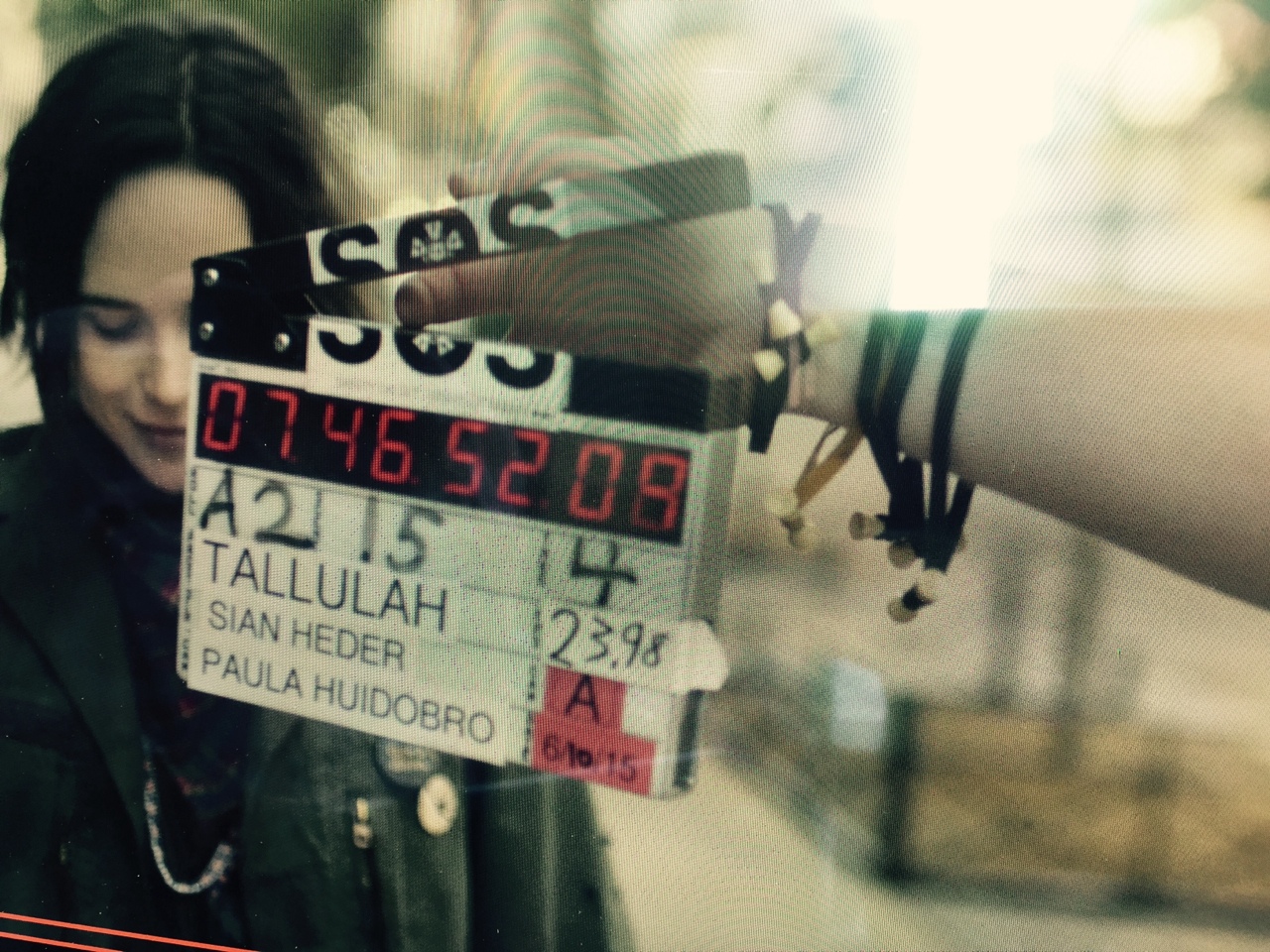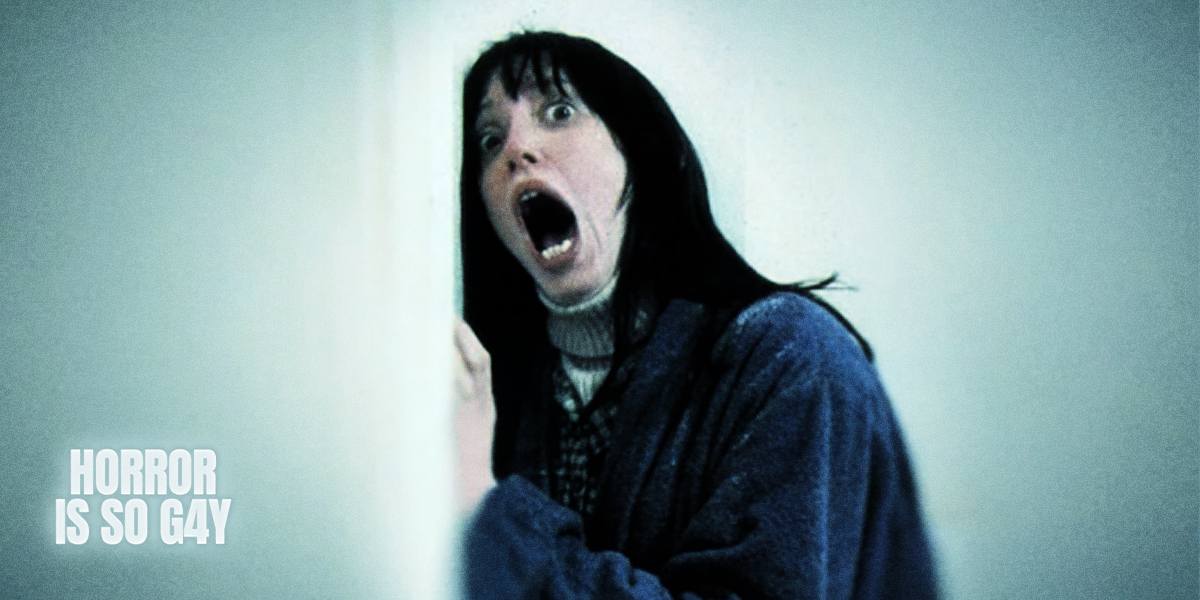feature image via Tallulah the movie the blog
You know the sound of the soft murmur of a restaurant? It has that low-ish register of people’s melodic conversations and polite pauses? Now imagine that sound, turn the pitch up by a fifth, and that’s the sound of a screening room about 80% women. That was the dull roar of the small screening of Tallulah at the DGA Theatre. It was put on by Sundance, the Kering group and Variety with the intent of bringing women filmmakers together. Which it did. You could hear the difference from outside the theatre.
Tallulah, for those of you who don’t know, is Ellen Page’s latest cinematic release, co-starring alongside Allison Janney in their first on-screen reunion since Juno. The film follows wandering vagabond Tallulah (Page), who ends up in New York City, in a heap of trouble, when a rich housewife (Tammy Blanchard) unexpectedly ropes her into taking care of her toddler. The film was the directorial debut of Sian Heder, whom you might know as a writer for Orange is the New Black. Page delivers a nuanced and powerful performance counterpointed by Allison Janney’s powerhouse portrayal of the complicated societal middle-ground between being a wife, a mother and a middle-aged woman. The film is creative, intimate, funny and poignant. Also, Uzo Aduba is in it and is magical, as always, in a subtle kind of way.
The film was swiftly followed by a discussion panel with producers Heather Rae, Alix Madigan and Lydia Dean Pilcher, and for the moment I am choosing to ignore that a white man was chosen to moderate this panel on the empowerment of women in film. We’ll get to him a little later. It was encouraging to see women, and powerful women at that, talk about how “making a movie is like moving a mountain,” because that’s exactly what it feels like most of the time, if you replace “making a movie” with “living” and “moving a mountain” with “life as a woman.”
I love discussions that are mostly women because they really tend to cut down on a lot of that Hollywood coded language we’re so used to hearing. I’m so done with hearing about “creative decisions” to excuse bad or thoughtless casting, or “not viable” to hide the fact that the studio thinks not enough people want to hear what you have to say – mainly because that room of straight white men don’t want to hear what you have to say.
The panel started with the stark admission that Tallulah took 7 years to produce after Sian Heder wrote the script 10 years ago. I was reminded of the stories flying around about how long Carol took to make (15 years, for those of you keeping score at home).
“It was absolutely all down to the financing,” producer Heather Rae said dryly. “Nobody wanted to finance it because it was a story about women. That was openly said.”
So how do you break into a business that is already so ingrained in the very culture that is preventing any upward growth of creativity, diversity and opportunity? It seems to be a global question. Even though the consensus is that – worldwide – cinema is facing a renaissance, the international film market is still a struggling enterprise. If you go visit a movie theatre in Brazil, or Mexico, or Italy or South Africa, the likelihood that you’ll see a film locally produced is very low. Most likely, you’ll be looking at a marquee that reads just as bleakly as the ones in the US (incidentally, I think they’re making another Paul Blart), because Hollywood is undeniably generating most of the world’s cinematic content.
“Just try and make your movie,” says Rae. “Except free yourself from the expectation that it’ll happen exactly as you picture it.”
“For me it was a learning experience,” said The Namesake producer, Lydia Dean Pilcher. “I had to learn the hard way that studios will not take the same risk on the career of a woman as they will [on] that of a young man. But you have to produce the work anyway.[…] Until we diversify the system all the way through, we are going to have trouble breaking through it.”
This brings me back to the moderator. I’m not sure who the genius at Variety was who decided that it would be a crackerjack plan to have a dude be the moderator of the panel intended to empower women, but there he was. I knew there was going to be at least something to report back when the first comment of the panel was pointing out this exact irony. It was almost poetic to be looking at the visual representation of the very issue these women were discussing. Almost.
I’m not gonna lie, this was not one of those major breakthrough moments. I was encouraged to see a theatre full of women in film (#womeninfilm) but it was definitely a very white panel speaking to a very white audience. So, nice try everyone, but ultimately, partial credit.
Tallulah was at the right place at the right time this festival season, and was promptly scooped up by Netflix a week before it premiered at Sundance in January. The producers chalk it up to the versatility of the film, but also to the new way that Netflix is interacting with its audience. Audiences have garnered new power in terms of telling producers what they will and will not watch, basically in real time, so data-driven companies like Netflix have taken hold of this data and will take more “risks” regarding its content. (Also, and I’m not sure if this bears noting, but Netflix also doesn’t share any of this data with its content producers. It mostly just buys its content and keeps its ratings internal, but that’s neither here nor there.)
“The notion that stories about women are ‘niche’ acquisitions is based entirely on myth. There is quantifiable data that proves the exact opposite,” said Rae. “Netflix looked at this film and asked itself, ‘who do we think the audience is?’
“Women 35 and over?” asked the moderator. (Ugh, this moderator.)
“I mean, sure,” shot back Rae, “but also everyone. Everyone who likes a good story. Everyone who likes Ellen Page.” (That’s you.)
The more I look at film trends over these past social media-soaked years, the more I see the same pattern emerging. The films that end up doing well and making an impact are those that treat their characters with enough care to make them complex, treat their audience with enough respect to make the story engaging and compelling. But most of all, the films that really stand the test of time are those that ask themselves, “is this my story to tell?” In the case of Tallulah, Sian Heder takes her time to explore the meaning of motherhood related to personhood, and the way human connection and relationships keep us grounded. It’s a fun note that Heder actually gave birth while the film was being produced, and in fact her daughter is featured as the film’s baby from time to time.
“Authenticity is what is going to drive these movies,” concluded Dean-Pilchard, while thunderous applause punctuated the panel.
Tallulah premieres on Netflix and in select theatres across the country on July 29th.








Comments
Ellen Page has been posting BTS pictures from Tallulah on her Instagram for the last year or so, and I have been SO EXCITED about finally getting to see it! Ellen Page and Alison Janney together again?! Sign me the fuck up.
I audibly groaned at: “Women 35 and over?”
I guess that’s just another way of saying “elderly women.”
I just wanted to say Ellen page is great and I love her work. your’s to I mite ad anyway thanks for everything X
I am definitely going to watch this as soon as it comes out on Netflix!